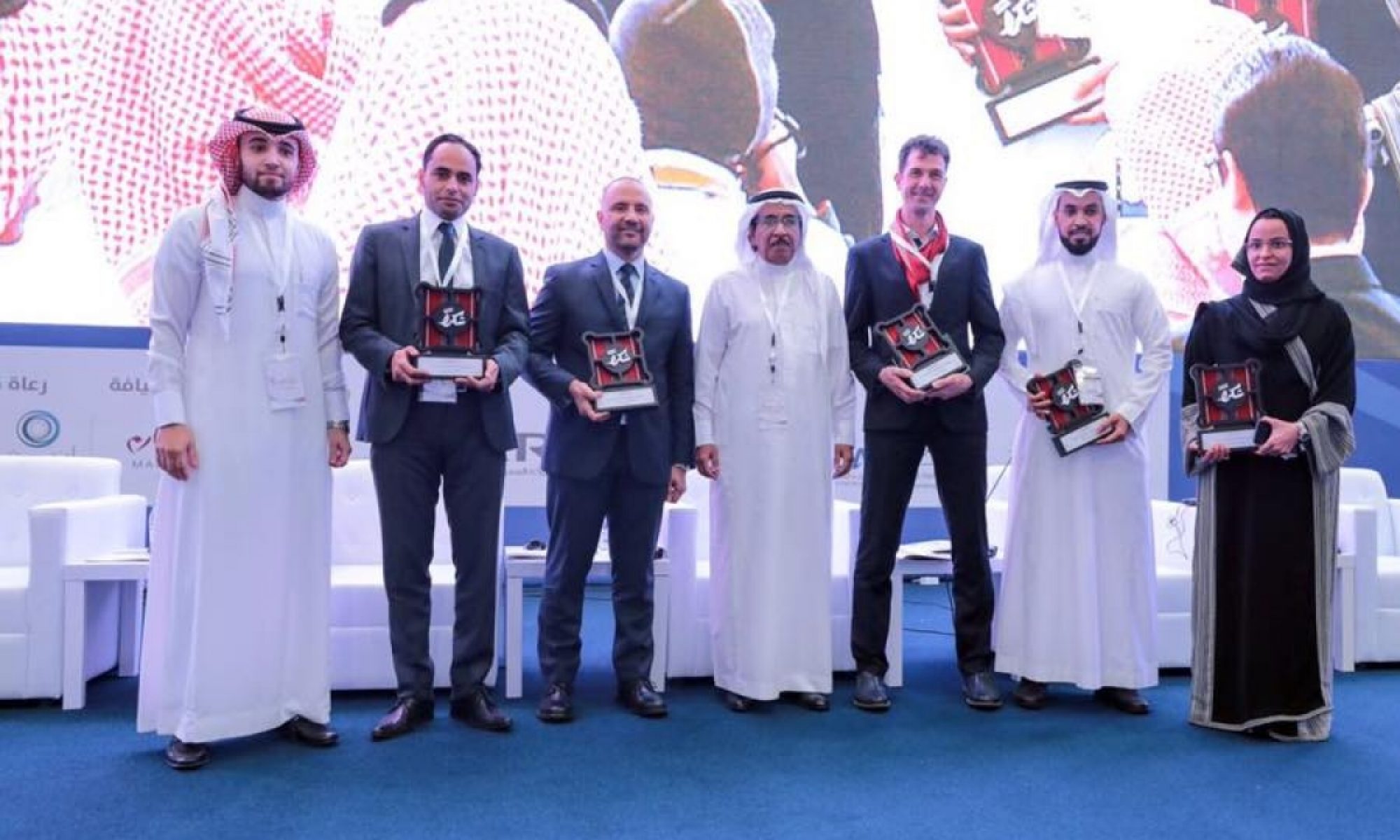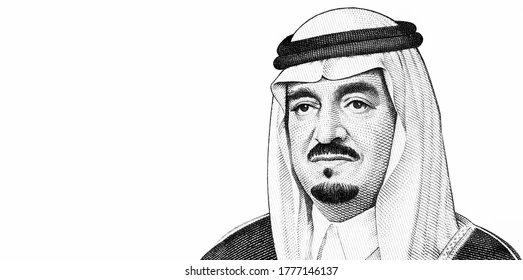
In the saga of Saudi Arabian history, the chapter marked by King Fahd bin Abdulaziz Al Saud is synonymous with modernization, visionary reforms, and an indomitable commitment to steering the Kingdom towards progress. As a transformative leader who ascended the throne in 1982, King Fahd’s reign played a pivotal role in shaping the contemporary landscape of Saudi Arabia. This blog endeavors to delve into the life, accomplishments, and lasting legacy of King Fahd – a modernizer whose influence resonates through the corridors of economic, social, and technological advancements.
Visionary Economic Reforms:
King Fahd’s era was characterized by a forward-thinking approach to economic development. Initiatives such as “The Fahd Plan” aimed at diversifying the economy beyond oil, promoting industrialization, and fostering private sector growth. These reforms laid the foundation for Saudi Arabia’s evolution into a dynamic and diversified economic powerhouse.
Infrastructure Renaissance:
The reign of King Fahd witnessed an unprecedented surge in infrastructure development. Mega-projects like the King Fahd Causeway, connecting Saudi Arabia and Bahrain, and the expansion of transportation networks showcased his commitment to connectivity and accessibility, crucial elements for a rapidly modernizing society.
Educational Revolution:
Recognizing the pivotal role of education in nation-building, King Fahd pursued a comprehensive educational revolution. His emphasis on expanding access to quality education, modernizing curricula, and promoting scholarship programs significantly contributed to the intellectual and academic growth of the Saudi population.
Technological Advancements:
King Fahd championed the integration of cutting-edge technologies into various sectors. The establishment of the King Fahd University of Petroleum and Minerals and the King Abdulaziz City for Science and Technology exemplified his dedication to fostering innovation and technological advancement.
Media and Cultural Renaissance:
King Fahd played a crucial role in steering Saudi Arabia into the digital age. The liberalization of media, the establishment of satellite channels, and the promotion of cultural events reflected his commitment to cultural openness and a more interconnected global society.
Regional Diplomacy and Global Engagement:
King Fahd’s leadership extended beyond national borders, with active involvement in regional diplomacy and global affairs. His contributions to the Gulf Cooperation Council (GCC) and efforts to mediate regional conflicts underscored Saudi Arabia’s role as a stabilizing force in the Middle East.
Healthcare Advancements:
The modernization efforts extended to the healthcare sector, with King Fahd prioritizing advancements in medical infrastructure and services. The establishment of modern hospitals and healthcare institutions contributed to an improved healthcare system catering to the growing needs of the Saudi population.
Environmental Stewardship:
King Fahd’s commitment to sustainable development included efforts to address environmental challenges. His administration implemented policies focused on environmental conservation, promoting awareness of ecological issues and fostering a sense of responsibility towards the Kingdom’s natural resources.
Cultural and Social Initiatives:
King Fahd’s reign saw a cultural renaissance with initiatives aimed at preserving Saudi Arabia’s cultural heritage. The establishment of cultural festivals, museums, and heritage centers contributed to fostering a sense of pride and identity among the Saudi people.
Continued Legacy and Philanthropy:
Even after his passing in 2005, King Fahd’s legacy endures through philanthropic initiatives, educational endowments, and ongoing development projects that bear his name. The King Fahd Complex for Printing the Holy Quran stands as a testament to his commitment to Islamic scholarship and dissemination of knowledge.
King Fahd bin Abdulaziz Al Saud’s legacy is one of dynamic modernization, visionary leadership, and a steadfast commitment to propelling Saudi Arabia into the 21st century. As the Kingdom navigates the complexities of a rapidly changing world, the echoes of King Fahd’s transformative reign continue to shape the nation’s identity, progress, and global engagement. His enduring legacy is a testament to the transformative power of visionary leadership in shaping the destiny of a nation on the cusp of modernity.
King Fahd bin Abdulaziz Al Saud: Architect of Modern Saudi Arabia and Global Visionary
Economic Openness and Foreign Investment:
King Fahd actively pursued economic openness, encouraging foreign investment and partnerships. His administration implemented policies to attract international businesses, fostering economic collaboration and contributing to the Kingdom’s integration into the global economy.
Industrialization and Petrochemical Expansion:
Under King Fahd’s reign, Saudi Arabia witnessed significant strides in industrialization and petrochemical expansion. The establishment of industrial cities, such as Jubail and Yanbu, and the development of petrochemical complexes marked a transformative phase for the Saudi economy, adding new dimensions to its industrial landscape.
Social Reforms and Women’s Rights:
While recognizing the importance of preserving cultural values, King Fahd also initiated social reforms. These included improvements in women’s rights, with steps towards greater educational and professional opportunities for Saudi women. The gradual opening of employment sectors and educational institutions marked a progressive shift in societal norms.
Investment in Human Capital:
King Fahd recognized the importance of investing in human capital as a key driver of sustainable development. His emphasis on education, healthcare, and vocational training programs aimed to empower the Saudi workforce, ensuring they were equipped with the skills and knowledge needed for the challenges of a modern economy.
Expansion of Religious Tourism:
The reign of King Fahd saw the expansion of religious tourism, with developments around the holy cities of Mecca and Medina. Infrastructure projects and facilities were established to accommodate the increasing number of pilgrims, contributing not only to religious tourism but also to the overall economic growth of the Kingdom.
Technological Innovations and Telecommunications:
King Fahd prioritized technological advancements, particularly in the telecommunications sector. The liberalization of the telecommunications industry and the introduction of modern communication technologies marked a significant leap forward in connecting Saudi Arabia with the global community.
Regional Leadership and Gulf Cooperation:
King Fahd played a central role in fostering regional cooperation through the Gulf Cooperation Council (GCC). The establishment of the GCC in 1981 aimed to strengthen economic and political ties among Gulf nations, contributing to regional stability and collaboration.
National Guard and Military Modernization:
As the head of the National Guard, King Fahd played a crucial role in enhancing the country’s security apparatus. His efforts included modernizing the military and National Guard, ensuring the Kingdom’s preparedness to address internal and external challenges.
Crisis Management and Gulf War Leadership:
During the Gulf War in 1990-1991, King Fahd demonstrated leadership and diplomacy. His decision to allow foreign troops on Saudi soil and his role in the international coalition against Iraq showcased his commitment to regional stability and the defense of the Arabian Peninsula.
Humanitarian Efforts and Global Philanthropy:
King Fahd’s commitment to humanitarian causes extended globally. His administration actively engaged in philanthropic efforts, providing aid to countries facing crises and contributing to international relief efforts. The Kingdom’s ongoing contributions to global humanitarian causes reflect the enduring legacy of King Fahd’s commitment to global welfare.
Conclusion on King Fahd’s Enduring Influence:
King Fahd bin Abdulaziz Al Saud’s legacy is one of comprehensive modernization, visionary leadership, and a profound impact on Saudi Arabia’s trajectory. His multifaceted reforms, from economic openness to societal advancements, continue to shape the Kingdom’s identity and progress. As Saudi Arabia navigates the challenges and opportunities of the 21st century, the enduring influence of King Fahd serves as a beacon of inspiration for leaders and citizens alike.
Visit Saudi Arabia Destinations Now
Here are some of our Saudi Arabia private tours, offering you the opportunity to embark on a captivating journey through the Kingdom of Saudi Arabia. Immerse yourself in the rich history of Saudi Arabia as you explore ancient wonders in cities like Riyadh, Jeddah, and Mecca. Discover the archaeological marvels of Al-Ula, with its UNESCO-listed Madain Saleh, and stroll through the traditional streets of Al-Ula Old Town. Experience the highland haven of Abha, nestled in the Asir Province, where you can explore Asir National Park and the historic village of Habala. Take in the breathtaking views at Al-Soudah Park and witness the natural beauty that defines the diverse landscapes of this enchanting kingdom. Whether you’re drawn to the historical charm of Riyadh or the mountainous landscapes of Abha, our Saudi Arabia private tours promise “A Trip to Remember.”
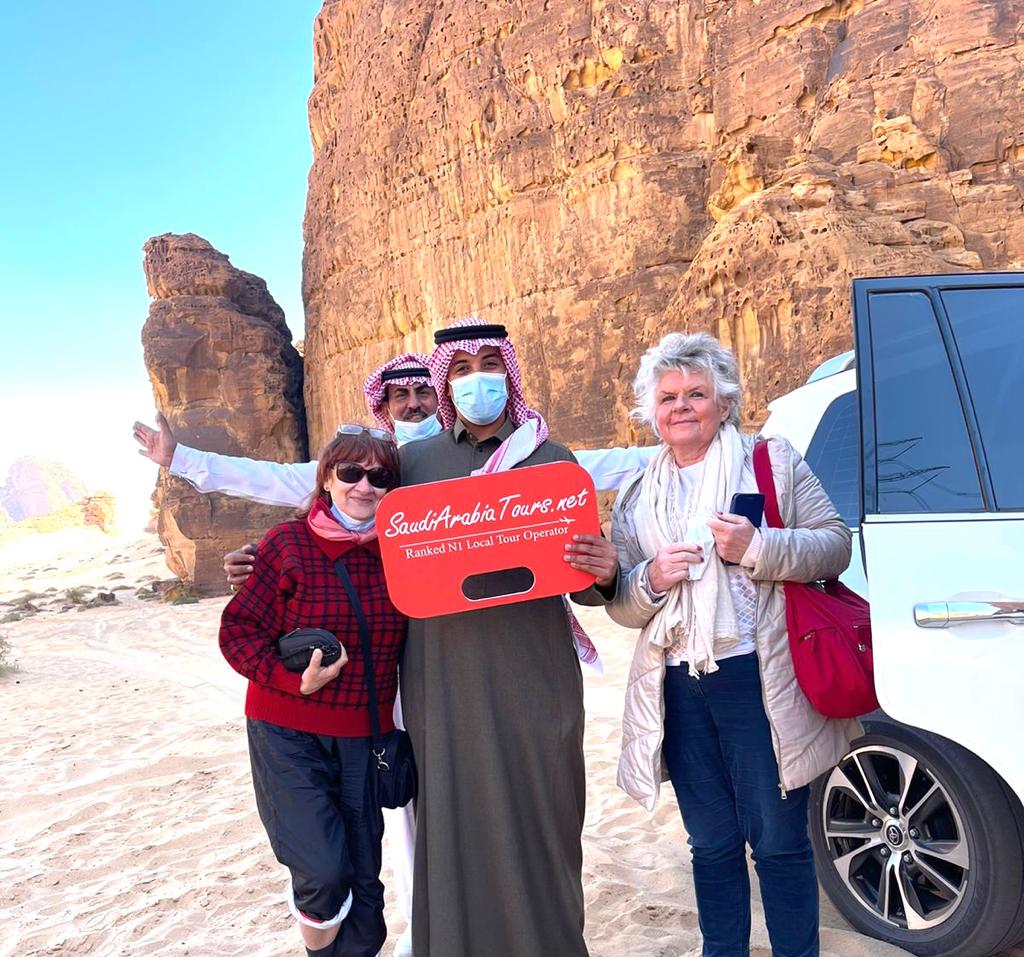
4 Days Riyadh Heritage Tour Package
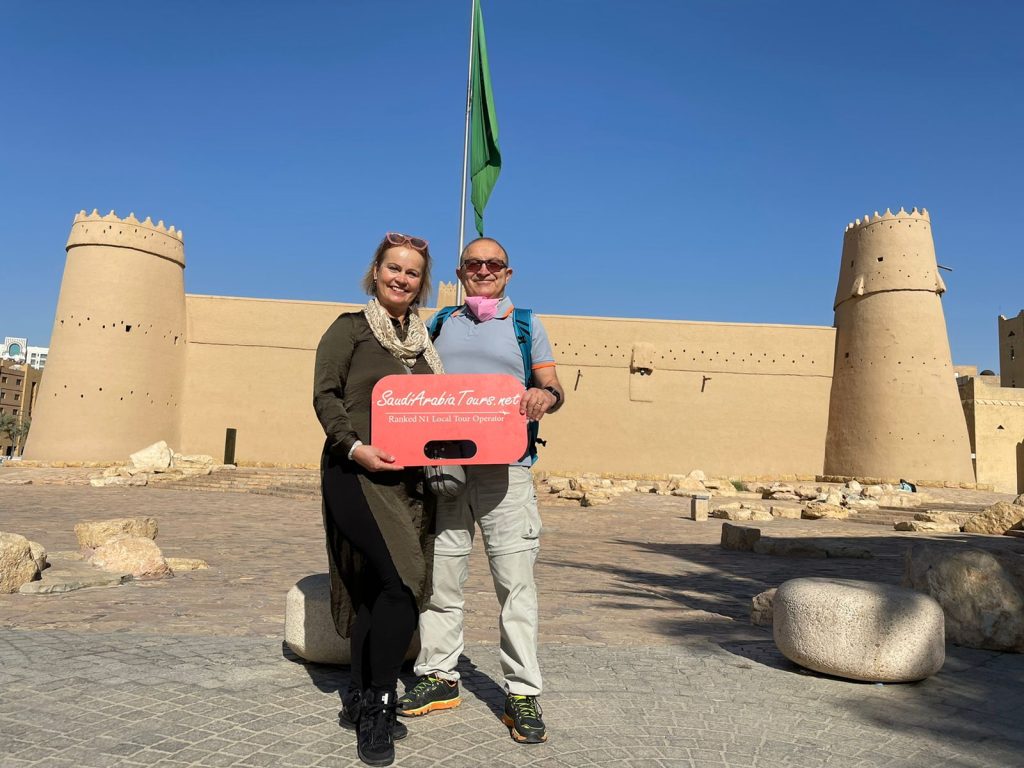
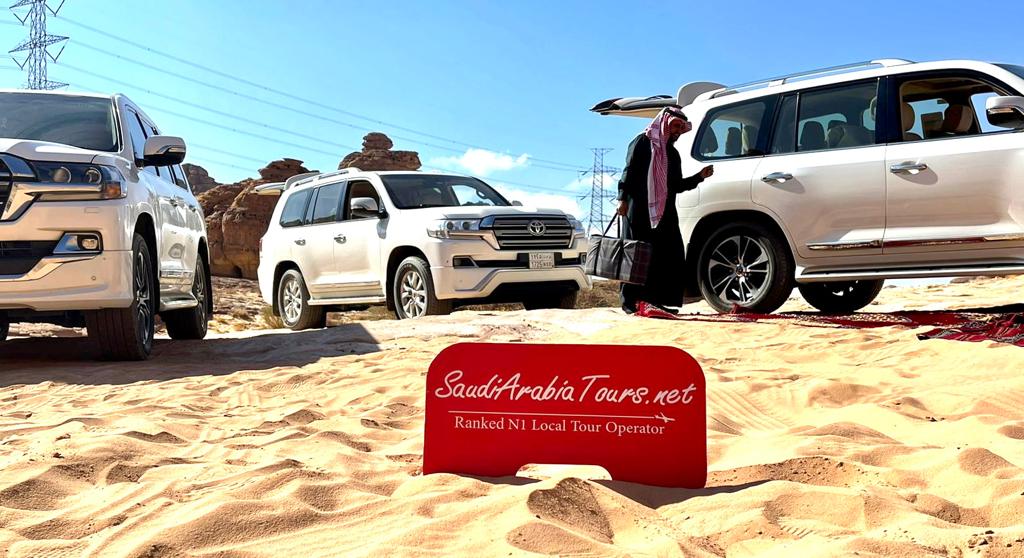
Saudi Arabia Explorer Riyadh, AlUla and Jeddah – 8 Days
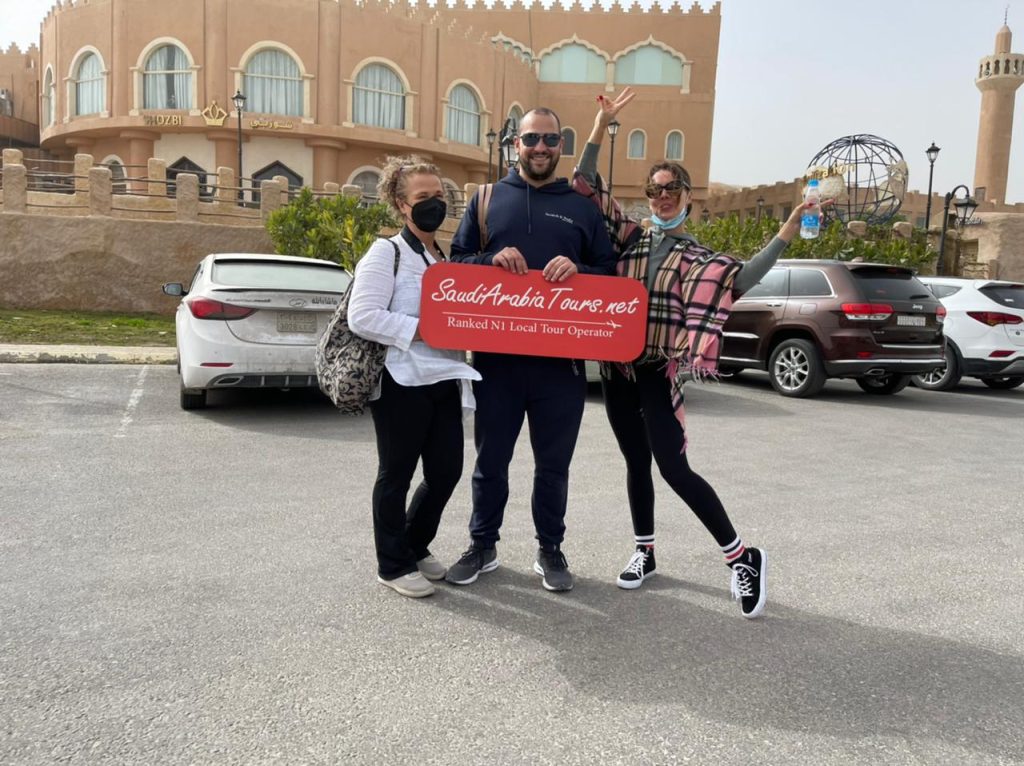
Majestic Tour of Saudi Arabia – 10 Days
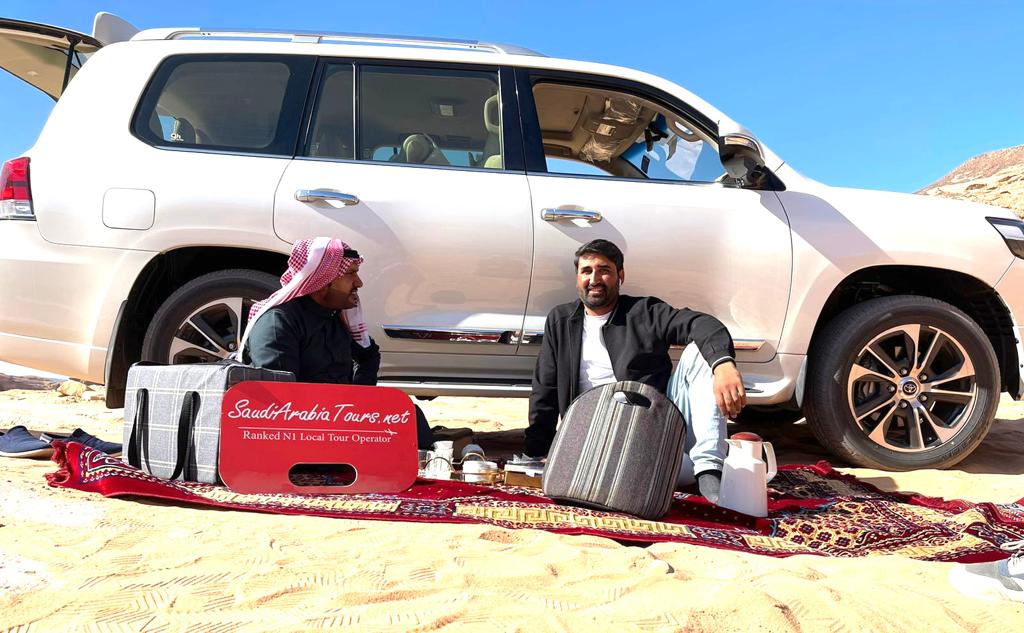
How Good are Saudi Arabia Tours?
Saudi Arabia Tours prides itself on being the best travel agency in Saudi Arabia as proven by our numerous positive reviews.
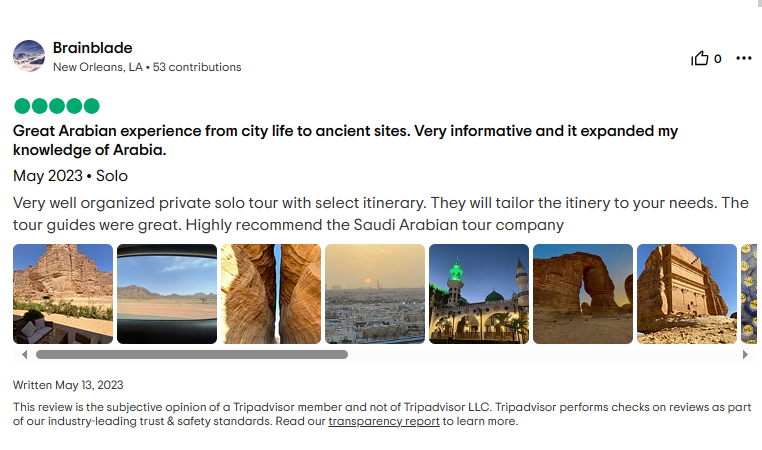
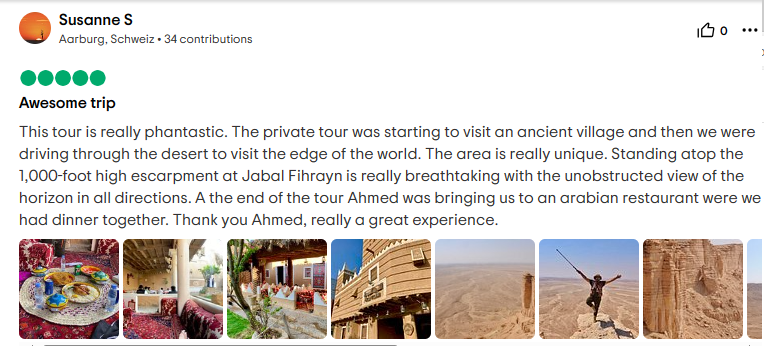
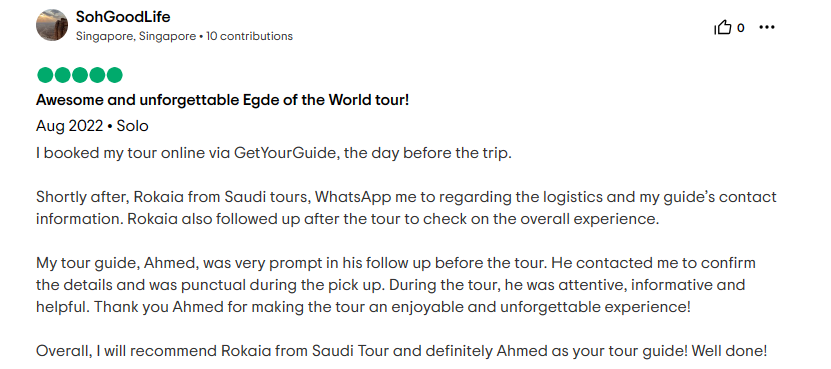
Frequently Asked Questions?
Is Saudi Arabia safe for tourists?
Tourists have been visiting Saudi Arabia and Saudi Arabians have a well-earned reputation for warmth and kindness toward visitors. Saudi Arabia cities are generally very safe, especially in areas where tourists frequent.
How to get a Saudi tourist visa?
Applying for a tourist visa to Saudi Arabia is easy. If you are from one of the 49 eligible countries, you can apply through the eVisa website. Holders of US, UK, or Schengen visas can apply for the visa upon arrival. Saudi Arabia is opening its doors to the world through its new tourist visa. Visitors will have the chance to discover and experience the warm hospitality of the Saudi people, the rich heritage, the vibrant culture, and Saudi Arabia’s diverse and breathtaking landscapes. The visa will be a one-year, multiple-entry visa, allowing tourists to spend up to 90 days in the country.
Are non-Muslims allowed in Saudi?
Non-Muslims can travel to all cities in Saudi Arabia except Medinah and Mekkah, Not allowed to non-Muslims to enter Mecca and Medinah.
Can I wear jeans in Saudi Arabia?
Both men and women are asked to dress modestly in public, avoiding tight-fitting clothing. Women should cover their shoulders and knees in public.
Contact us for more information on:
saudiarabiatours.net@gmail.com
Address: Head Office Olaya St, Riyadh 12213, Saudi Arabia.
If you are booking and taking the tour within 24 hours, or have an urgent request, call us on
Cell/whatsapp : +966558018938 For more info please visit Saudi Arabia Tours
